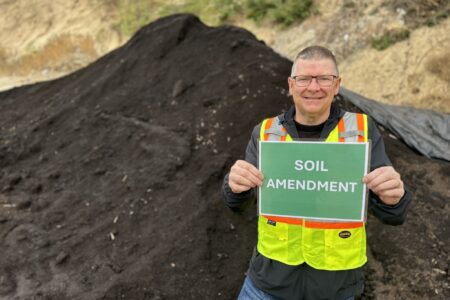Sharp rise in deaths among people experiencing homelessness continues in 2022
The deaths of at least 342 people experiencing homelessness were reported to the BC Coroners Service in 2022, continuing an increase in deaths among the unhoused population of 138% in the past two years.
During the period studied (2015-22), there were 1,464 deaths involving individuals identified as experiencing homelessness in British Columbia, equating to an average of 183 deaths per year. There was a significant increase from this average in 2021 and 2022.
The townships with the highest number of deaths between 2015 and 2022 were Vancouver (306), Surrey (146) and Victoria (118). Almost three quarters (74%) of decedents were aged between 30 and 59, and 82% were male.
Because housing data was unavailable at the time of analysis, rates of death and any possible correlation between deaths and the number of people experiencing homelessness in the province could not be determined.
Just as it has across all demographics and in communities throughout B.C., the toxic drug supply has significantly contributed to the increased number of deaths among people who are precariously housed or experiencing homelessness. More than eight out of every 10 deaths in the review period were classified as accidental, and of those accidental deaths, more than nine in 10 were determined to have been caused by unregulated drugs.
For the purposes of the report, an individual experiencing homelessness was defined as:
- A person living outdoors, in a make-shift shelter, a parked vehicle, a vacant home or any other structure not intended for habitation; or
- A person staying at an emergency shelter (overnight) or who is temporarily sheltered (suspected to be for less than 30 days) by friends or family, in a short-term shelter, safe house for youth or transition house for women and children fleeing violence.
- Persons residing in short-term shelters, safe houses or transition houses for an unknown length of time were also included.
Some individuals who do not meet the above definitions of homelessness may be considered homeless under other definitions. Examples of individuals who were not considered homeless for the purposes of this report include: people in correctional institutions, hospitals or residential drug or alcohol treatment facilities; and people who have permanent residences but are considered at high risk of homelessness because of unemployment, domestic violence or other factors.
Additional key preliminary findings are below. Data is subject to change as additional post-mortem testing results are received:
- Between 2015 and 2020, the annual average was 143 deaths. In comparison, the annual average from 2021 to 2022 was 305 deaths.
- More deaths occurred in the fall (27%) and winter (26%) months of the year.
- The most impacted health authorities were Fraser (32% of deaths) and Vancouver Coastal (24%).
Learn More:
To read the report, Deaths of Individuals Experiencing Homelessness 2015-2022, visit: https://www2.gov.bc.ca/assets/gov/birth-adoption-death-marriage-and-divorce/deaths/coroners-service/statistical/deaths_of_individuals_experiencing_homelessness_2015-2022.pdf
























